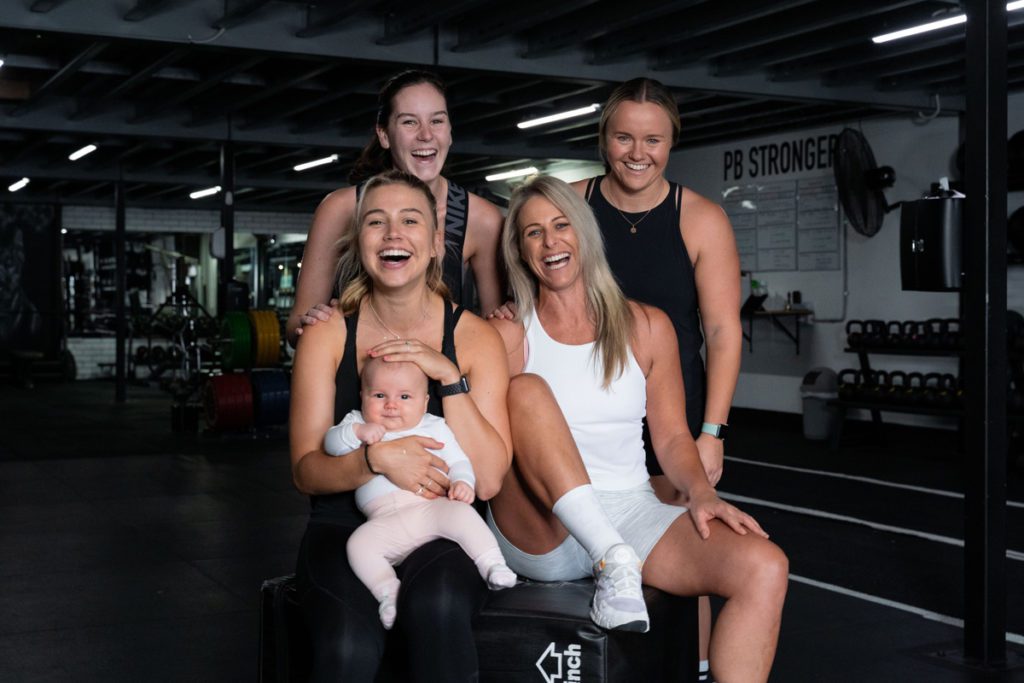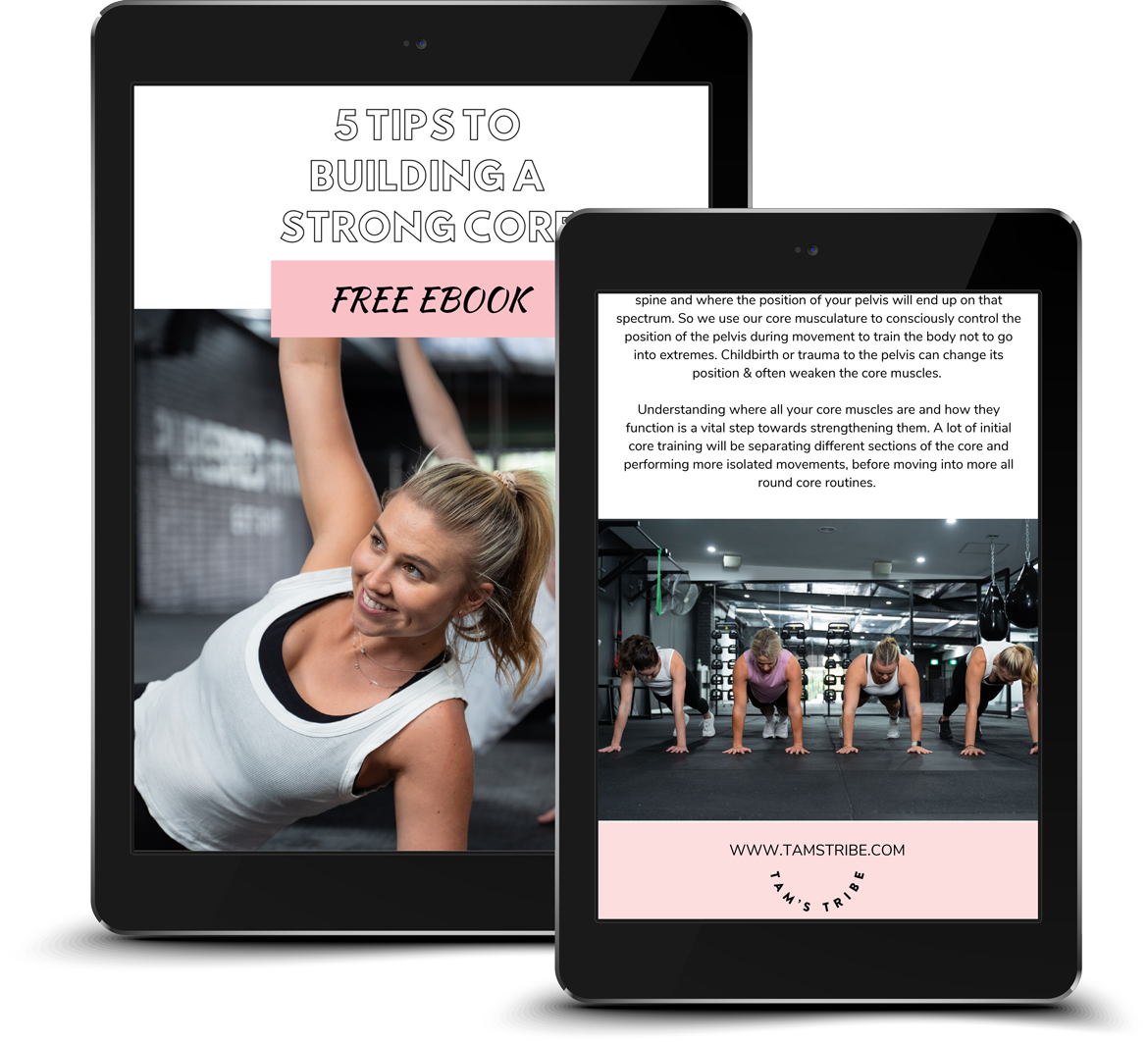I just turned 39 so I am edging towards 40 rather swiftly, I don’t by any means feel old but I can feel the difference in my body compared to my 20’s and early 30’s. Are you heading towards 40 or maybe well into your 40’s, 50’s, 60’s or above. I train many women in these age categories and know how hard it can be for these women to navigate their training & the changes in their bodies during this time. Luckily we have incredible and highly educated practitioners who can advise us on the best way to take care of our bodies and get the most out of our training, the older generation weren’t this lucky so we need to make sure we use these great resources as we approach the years our bodies begin to change.
Feel so lucky to be surrounded by so many of these incredible women and be able to share with you their awesome education. I hope you enjoy my chat with Sophie as much as I did and can take away some awesome information from this chat.
Can you introduce yourself to our readers and let them know what you do?
Hi, my name is Sophie Carroll and I am a musculoskeletal and women’s health physiotherapist. This means I don’t just see women for pelvic floor concerns, but I can also address any underlying musculoskeletal injuries which may or may not be contributing to their symptoms.
I see women (and men) of all ages in the clinic. Majority of my clients have found our clinic in search for assistance with their pelvic health, however I do still see clients for musculoskeletal concerns such as knee pain or a sprained ankle.
How long have you worked as a women’s health physiotherapist? What led you to working in the industry and what is your favourite thing about what you do?
I have worked in Women’s Health for almost 9 years. This wasn’t the area of physiotherapy I planned to enter when studying at university, however after gaining a further Masters in Musculoskeletal Physiotherapy and adopting a special interest in the lumbo-pelvic-hip complex over the 10 years prior, I knew there was an aspect of patient assessment I was missing. This yearning of wanting to know more of the client’s story, plus a few issues in my own pregnancy, led me to sign up to study Women’s Health and I haven’t looked back.
To have a profession where people trust you with information about what they feel is their most ‘embarrassing’ problem, plus being able to help them recover. This is the most rewarding and by far my favourite aspect of the job. And of course the newborn cuddles when new mums bring their little ones in for the postnatal check
I know you treat a lot of women over 40. Can you explain the most common injuries you’re presented with?
When women enter their 40’s, they have often spent the last 10 years raising children, they may have entered peri menopause / menopause, they are juggling the work/kids/life balance; and their own health has been put on the back burner. Women then enter their 40’s wanting to get their fitness / strength back and commence high intensity training or lifting heavy weights at the gym.
As a result, I often see lower back, pelvic and/or hip injuries in this age group. They may not have had the stability or control to be able to manage the weights used, or ability to run with optimal technique without compensatory methods being used.
By far the most common issue I see in this age group is stress urinary incontinence (SUI). They are back to the gym / running and they are complaining of leaking. SUI is one of our hardest conditions to ‘fix’ as there are many factors at play – they may have had pelvic floor damage during childbirth, they may have reduced awareness of the pelvic floor muscles, or maybe their issues may stem from an ankle injury before kids. Assessment, and therefore treatment plan, for each woman is often multifactorial.
When it comes to women continuing to train and play sport over 40, what would your tips be to help them stay pain & injury free?
The best tip is to be prepared and seek assistance from health care professionals as a preventative, rather than booking in when you experience symptoms. I am obviously biased with my profession, but I believe every woman needs to have a pelvic health assessment. Even if they haven’t had children. Know what’s happening with your own pelvic health, know how you can prevent issues arising and know what pelvic floor exercises are best for you and your daily / sport specific activities.
Next is invest in a women’s health personal trainer / pilates instructor / running coach (whatever your exercise of choice is). I highly recommend doing your homework and ask your trainer if they are education in the field of women’s health. If not, ask if they can communicate with your women’s health physio. A team approach is always best with ensuring the client stays injury and pain free.
Also, be consistent. Move every day. Whether it’s a gym session, walk around the park or bike ride with the kids. The more consistent you are with moving and training, the more likely you will stay injury and pain free.
Do you think women over 40 need to readdress their style of training as they approach menopause? Do you think some training styles affect things like pelvic health?
Definitely. In our 40’s our hormonal systems are changing. Generally, we are losing oestrogen production which in turn affects our musculoskeletal and pelvic health. This, in addition to our birth history, will affect how we train during the peri menopause and menopausal years.
For example, if a client has had a vaginal birth, they not seen a pelvic health physiotherapist (they may not have experienced any postnatal concerns) and they return to heavy impact exercises and/or weight training. These women are at risk of not only urinary incontinence but also pelvic organ prolapse. This statement should not scare women away from weight training, but rather encourage them to take a gradual approach in returning to exercise and invest in their healthcare team.
What is your advice to your patients in regards to their training if they are suffering from things like pelvic organ prolapse? And how severe can this end up if it is not well managed?
There is great evidence supporting women to undertake weight training postnatally and it not being detrimental towards pelvic organ prolapse, if performed correctly. A great podcast to listen to is the Pelvic Heath Podcast by Lori Forner who has conducted many studies in this area (https://www.loriforner.com/podcast).
My number one piece of advice is to be checked by a pelvic health physio. Are you able to engage your pelvic floor effectively in standing and squat (yes, we can assess women in functional positions), or are you only able to contract your pelvic floor when lying down. From here, we can give you graded strengthening program not only working on strength, but also co-ordination of your pelvic floor; aiming to prevent pelvic organ prolapse.
We are also lucky to be able to view these organs under different loads with the use of a transperineal ultrasound. From this information, we can guide you through your optimal training technique and recommended weight lifting amount.
As a physio, I would rather you moving and training rather than being inactive. Therefore, I would never tell all women not to train if they have a pelvic organ prolapse. We have devices called pessaries which may be used during training / exercises sessions to prevent injury; and can be fitted by a qualified physiotherapist or gynaecologist.
If not well managed, pelvic organ prolapse can worsen during training sessions. This is far from ideal but unfortunately can (and does) happen.
Do you think fitness coaches need more education in the area of pelvic health?
I think you are better at answering this one Tam, but definitely. If you are a fitness coach training any female over the age of 35 you will need to gain further knowledge in women’s health. If you don’t have the extra training, find a local women’s health physio you can chat to. Even better, if your client is already seeing a therapist, contact them and ask specific questions related to your mutual patient. The more communication you have with your client’s healthcare team the better.
Also, listen to your client. Ask them before starting a program if they have any pelvic health concerns. In majority of cases, women know their own bodies. They know when an exercise feels ‘right’ or ‘wrong.’ Trust what they say and develop a program of ‘pelvic safe’ exercises you can resort to.
Can you give the over 40’s readers a list of takeaways they should consider in regards to their training and perhaps some good questions to ask their fitness coaches prior to starting a new training program or gym class?
- Know your own pelvic health – have one assessment if you haven’t already done so. Remember preventative is the key.
- Trust your own body. When an exercise / weight feels ‘wrong’ for your pelvis, communicate this with your trainer.
- Start small and slowly build up. Don’t expect to be lifting heavy weights or running a half marathon immediately on return. Take is slowly.
- Make time to stretch. Mobility is a key requirement for injury prevention and is often forgotten in gym training sessions.
- Move a little every day. If feeling unmotivated, don’t go for months without training, aim to move a little each day.
- Ask your trainer if they have further education in women’s health. If not, would they be willing to communicate with your pelvic health team? Do they have a repertoire of pelvic safe exercises?
- And have fun!
Need a Women’s Health check up you can find Sophie at Enlighten Collective.
Want to get started on some safe and effective exercise book a free call with me today and I can help get you started I offer face to face coaching (Caringbah and Moss-Vale) and online coaching worldwide.

